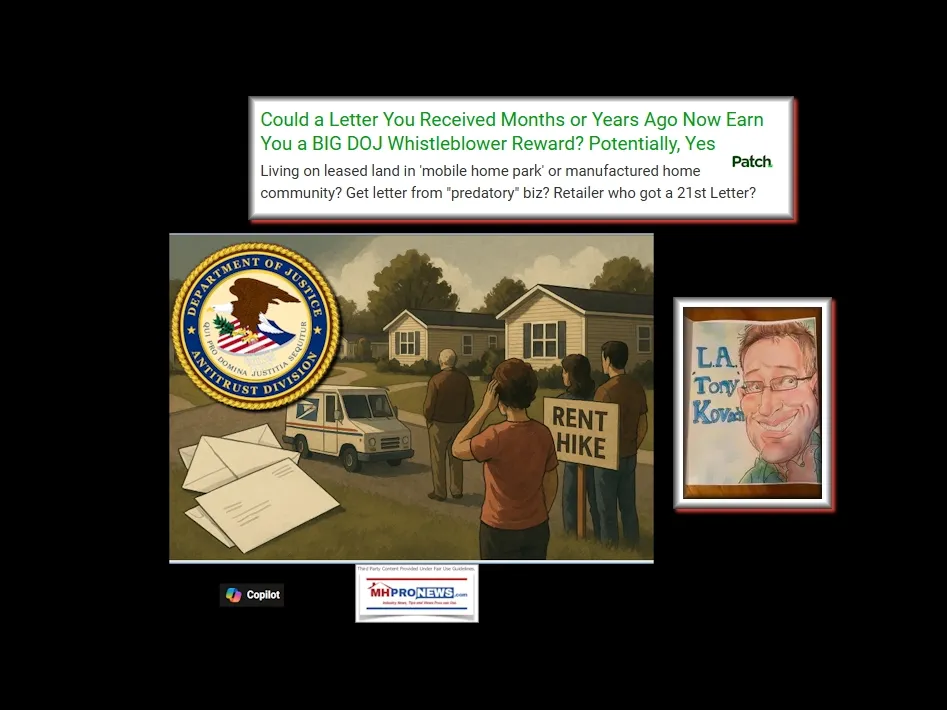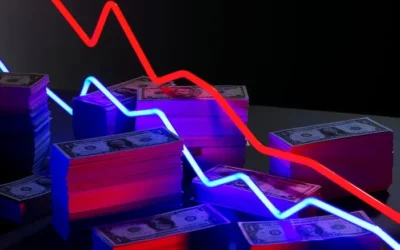The DOJ Antitrust Division Unveils New Whistleblower Rewards Program
In an unprecedented move aimed at bolstering its fight against anti-competitive practices, the Antitrust Division of the United States Department of Justice (DOJ) has announced a new program that rewards whistleblowers. As competition intensifies in various sectors, this initiative seeks to elevate transparency and hold corporations accountable for collusion and other unfair practices. Though the program is relatively new, its implications could resonate throughout industries ranging from technology to telecommunications.
Understanding the Need for Whistleblower Protection
The landscape of business competition is always evolving, with new players entering the market and existing ones redoubling efforts to maintain their dominance. However, this can result in unethical practices such as price-fixing, market division, and other forms of collusion. Such behavior not only stifles competition but can also lead to inflated prices for consumers and a lack of innovation.
The DOJ recognizes that insiders often hold critical information regarding these anti-competitive practices. However, potential whistleblowers face significant risks, including job loss, retaliation, and reputational damage. Consequently, the Department has made a concerted effort to provide protection and incentive to these individuals through its whistleblower program.
What Does the New Program Entail?
The new DOJ Antitrust Division program, which was officially rolled out in early 2025, encourages individuals to come forward with information that could lead to successful enforcement actions against companies engaged in illegal conduct. Here are key elements of the program:
- Monetary Rewards: The program offers financial incentives that can reach up to 30% of any monetary recovery resulting from a successful enforcement action that stems from the whistleblower’s information.
- Confidentiality Protections: All whistleblower submissions will be treated with the utmost confidentiality to encourage people to step forward without fear of repercussions.
- Legal Immunity: The program extends certain legal protections to whistleblowers, ensuring that they are shielded from civil liability related to their disclosures.
- Guidance and Resources: The DOJ is committed to providing resources and guidance to help whistleblowers navigate the process, ensuring they understand their rights and the importance of their contributions.
Why This Change Matters
The launch of the whistleblower program is indicative of a broader commitment by the DOJ to tackle collusion and anti-competitive behavior more actively. History has shown that enforcement actions based on whistleblower information can yield significant results. For example, past whistleblower cases have led to substantial penalties against major corporations found guilty of collusive practices.
By incentivizing insiders, the DOJ hopes to uncover activity that would otherwise remain hidden. “We are sending a clear message that we are committed to rooting out anti-competitive behavior and we will reward those who come forward,” remarked Deputy Attorney General during the announcement of the program.
Industry Responses
The reaction from various sectors to the DOJ’s whistleblower initiative has been mixed. While some stakeholders welcome it as a necessary step towards ensuring fair competition, others express concerns about its potential to misuse or abuse. Industry leaders fear that the wrong incentives could lead to frivolous claims or that former employees might exploit the program for personal gain.
To address these concerns, the DOJ plans to implement a stringent review process to determine the validity and substance of claims before any rewards are issued. This ensures that only credible information gleaned from genuine whistleblowers leads to economic penalties or legal action against offenders.
The Cop Is Still on the Beat: Continuing Vigilance
The DOJ’s antitrust enforcement cannot be seen as a one-time effort; instead, it is a part of a larger strategy to keep the market fair and open. As enforcement actions from the past have shown, there is always a reservoir of illegal conduct if practitioners think they can escape scrutiny. The new whistleblower program serves as an additional layer of oversight.
As enforcement practices evolve, so do the tools and methods available to investigators. Data analytics and artificial intelligence are increasingly used to detect anomalies in pricing, market share shifts, and other indicators of collusive behavior. But human insight from whistleblowers serves as a valuable complement to these technologies.
Looking Ahead: The Future of Antitrust Enforcement
As the DOJ’s Antitrust Division continues to roll out this landmark whistleblower program, the implications of this initiative are significant. It not only fosters a culture of transparency but also empowers individuals to contribute to maintaining fair markets. Advocates for fair competition will be watching closely to see how effective the program becomes in uncovering malicious practices.
But while this program is a positive step forward, it also raises questions about the future landscape of antitrust enforcement—what additional tools or policies may be necessary to ensure ongoing compliance and fairness in the marketplace? Early signs indicate that collaboration between regulators and industry stakeholders will be crucial in creating an environment that discourages collusion while encouraging competitive practices.
Conclusion
The DOJ’s new whistleblower program signals a proactive approach to tackling anti-competitive behavior and ensuring that companies play by the rules. As we move further into the 2020s, the promise of financial rewards combined with protections for whistleblowers could empower individuals to take a stand against collusion, ultimately creating a healthier and more competitive market for everyone, from consumers to small businesses.
In a landscape where technology, economics, and ethics intertwine, this program may prove to be a pivotal mechanism in maintaining market integrity. As whistleblowers step forward with their stories of collusion and corruption, they may indeed be the champions in a system that values competition and fair play.







